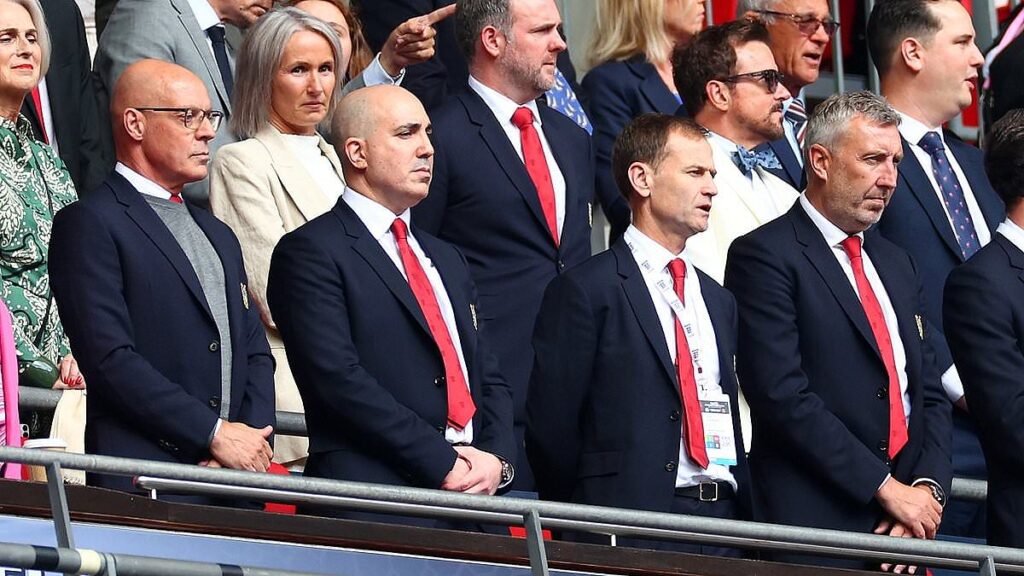The appointment of Ruben Amorim as Manchester United’s new manager has sparked a whirlwind of emotions among fans and pundits alike. It’s not just a managerial change; it’s a significant shift in the club’s identity and future trajectory. For many supporters, this decision brings a mix of hope and anxiety, echoing the club’s fluctuating fortunes in recent years. This analysis aims to delve into the intricate factors that led to Amorim’s selection and what it means for the club going forward.
The Managerial Contenders: A Diverse Landscape
In the quest for a new leader, Manchester United explored a variety of managerial options, each with their unique flair and philosophy. High-profile names like Max Allegri, Edin Terzic, and Xavi were thrown into the mix, each bringing a distinctive approach to the game. As someone who has followed the club closely, it’s fascinating to see how the club’s leadership navigated this complex web of choices.
The club’s decision-makers faced a daunting task: selecting a manager who could not only breathe life back into the team’s performance but also align with the club’s long-term vision. I remember discussing this with fellow fans, pondering the implications of each candidate’s style and how they might fit into the storied fabric of United. The managerial shortlist reflected a deep understanding of the club’s needs, making it clear that the decision was far from superficial.
Ruben Amorim: A New Chapter Unfolds
Ruben Amorim’s appointment is more than just a fresh face in the dugout; it’s a calculated gamble that signals a potential shift in Manchester United’s approach to the game. His success at Sporting CP, characterized by a series of domestic trophies and an innovative tactical mindset, undoubtedly caught the attention of the club’s hierarchy. However, as someone who appreciates the nuances of football, I can’t help but wonder about the challenges that lie ahead for him, especially given his limited experience in one of Europe’s elite leagues.
The transition from Sporting CP to Manchester United is no small feat. The pressure to deliver results in a club of such stature is immense, a far cry from the environment he fostered in Portugal. I recall the excitement when he was first linked with the role, but also the caution that came with it. Amorim’s blend of tactical adaptability and focus on player development will be put to the test as he seeks to integrate new signings and nurture young talent. The financial implications of his hiring, including his release clause and salary, underscore the club’s faith in his potential to reshape the squad.
Financial and Strategic Considerations: A Broader Perspective
The choice to appoint Amorim goes beyond just filling a managerial vacancy; it represents a strategic pivot for Manchester United. The financial aspects of this decision, from the manager’s compensation to the potential effects on sponsorship deals and budget allocations, were likely scrutinized closely. The club’s long-term vision encompasses not only player recruitment but also youth development and competitive standing, all of which played a crucial role in the decision-making process.
As a fan, it’s fascinating to consider how Amorim’s tactical preferences might reshape the club’s transfer strategy. The types of players brought in will likely reflect his vision, leading to significant shifts in the squad’s dynamics in upcoming transfer windows. It’s a thrilling prospect, yet one that comes with its own set of risks. The club’s overarching goals must guide this process, ensuring that Amorim’s appointment aligns with a coherent strategy for future development.
The Missed Opportunity with Thomas Tuchel
One can’t help but ponder the implications of Manchester United’s decision not to pursue Thomas Tuchel, especially given the discussions that took place earlier. This choice raises questions about the club’s strategic priorities and the rationale behind favoring Amorim. Tuchel’s extensive experience in top-tier leagues and his proven ability to manage high-profile players make him a compelling candidate. However, the club’s preference for Amorim suggests a desire for a different kind of vision—one that emphasizes long-term development over immediate success.
Reflecting on this, it’s clear that the absence of Tuchel from the shortlist significantly influenced the course of events. This strategic choice illustrates the qualities and experiences that the club’s leadership deemed essential for their future. The long-term consequences of this decision will unfold in time, but it undoubtedly shaped the final outcome of the managerial search.
Conclusion
In summary, Manchester United’s decision to appoint Ruben Amorim marks a pivotal moment in the club’s ongoing narrative. This choice, arising from a thorough evaluation of various candidates, indicates a potential shift in direction that could influence the club’s future for years to come. As a dedicated follower of the team, I can’t help but be intrigued by the financial and strategic ramifications of this move. The upcoming season will be a crucial period for both Amorim and the club, as they embark on this new chapter together.



